-
 Bitcoin
Bitcoin $117800
0.42% -
 Ethereum
Ethereum $4436
0.39% -
 XRP
XRP $3.106
0.86% -
 Tether USDt
Tether USDt $1.001
0.04% -
 BNB
BNB $835.4
1.26% -
 Solana
Solana $188.8
2.21% -
 USDC
USDC $0.9999
0.00% -
 Dogecoin
Dogecoin $0.2302
2.98% -
 TRON
TRON $0.3484
-1.05% -
 Cardano
Cardano $0.9212
-1.20% -
 Hyperliquid
Hyperliquid $46.77
-0.77% -
 Chainlink
Chainlink $22.76
5.64% -
 Stellar
Stellar $0.4278
0.68% -
 Sui
Sui $3.771
2.39% -
 Bitcoin Cash
Bitcoin Cash $583.7
-0.91% -
 Ethena USDe
Ethena USDe $1.001
0.04% -
 Hedera
Hedera $0.2520
2.88% -
 Avalanche
Avalanche $24.28
2.56% -
 Litecoin
Litecoin $120.1
1.44% -
 Toncoin
Toncoin $3.452
1.46% -
 UNUS SED LEO
UNUS SED LEO $9.409
-0.95% -
 Shiba Inu
Shiba Inu $0.00001298
2.02% -
 Uniswap
Uniswap $11.01
3.56% -
 Polkadot
Polkadot $3.962
2.81% -
 Dai
Dai $1.000
0.00% -
 Bitget Token
Bitget Token $4.639
1.16% -
 Cronos
Cronos $0.1511
-0.06% -
 Ethena
Ethena $0.7254
2.87% -
 Monero
Monero $255.7
7.41% -
 Pepe
Pepe $0.00001101
2.80%
How to ensure the anonymity of Ethereum wallet?
Achieving complete Ethereum anonymity is impossible, but using privacy-focused wallets, mixers, VPNs, multiple addresses, and secure operating systems significantly enhances your privacy by obfuscating transaction details and masking your IP address.
Mar 22, 2025 at 12:49 am
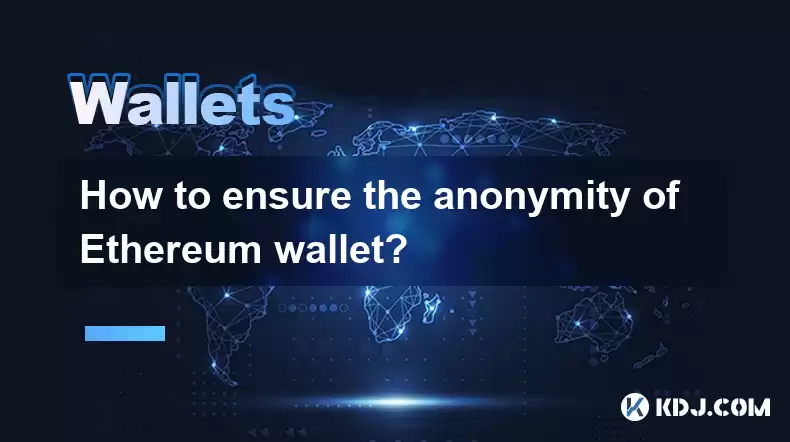
How to Ensure the Anonymity of an Ethereum Wallet?
Maintaining anonymity in the cryptocurrency world, particularly with Ethereum, is a complex challenge. While complete anonymity is virtually impossible due to the public nature of the blockchain, various techniques can significantly enhance your privacy. This article explores methods to increase your Ethereum wallet's anonymity, focusing on practical steps and considerations.
The fundamental principle behind Ethereum's functionality is transparency. Every transaction is recorded on the public blockchain, making it theoretically possible to trace funds back to their origin. However, this traceability can be obfuscated through strategic approaches. Understanding these approaches is crucial for enhancing your privacy.
One of the primary methods is using a privacy-focused Ethereum wallet. These wallets often incorporate features designed to mask transaction details. Many offer advanced features like coin mixing or obfuscation techniques to make it difficult to link transactions to a specific user. Researching and selecting a reputable privacy wallet is paramount.
Another critical step involves using a mixer or tumbler service. These services combine your Ethereum with those of other users, making it significantly harder to track the origin and destination of funds. However, caution is advised; choose only established and reputable services to avoid scams or services that may compromise your privacy. Thoroughly vet any service before utilizing it.
Creating and using multiple wallets is another strategy. Distributing your funds across various wallets complicates tracking. By using different wallets for different purposes, you make it more challenging to connect your activities and thus improve your privacy. Careful management of these wallets is essential.
The use of a VPN (Virtual Private Network) is a supplementary measure. A VPN masks your IP address, preventing direct linkage between your transactions and your physical location. While not directly protecting your Ethereum transactions on the blockchain, it provides an additional layer of privacy by obscuring your online identity.
Utilizing a privacy-focused operating system further enhances anonymity. Operating systems like Tails, designed with privacy in mind, can offer an added layer of security during your Ethereum transactions. Remember, using a secure OS alone doesn't guarantee complete anonymity, but it adds another hurdle for potential trackers.
Careful management of your Ethereum addresses is also crucial. Avoid reusing addresses whenever possible. Each transaction leaves a trace, and reusing an address creates a clear link between your activities. Generating new addresses for each transaction significantly improves your anonymity.
Remember that off-chain transactions, those that don't directly interact with the main Ethereum blockchain, can also offer some level of privacy. However, understanding the technical aspects and security implications of off-chain transactions is vital before attempting them. They may introduce new vulnerabilities.
Transaction obfuscation techniques, beyond simple mixing, are emerging. These more advanced methods aim to further obscure transaction details. Research into these techniques is ongoing, and understanding their limitations and potential risks is crucial before implementation.
The choice of exchange is also relevant. Some exchanges prioritize user privacy more than others. Choosing an exchange with robust security measures and a commitment to privacy can help protect your identity when interacting with the Ethereum network. Always check their privacy policy.
It is also important to understand that while these steps can enhance your privacy, they do not guarantee complete anonymity. The blockchain's public nature remains a fundamental constraint. The level of anonymity you achieve will depend on the combination of methods you employ and how effectively you use them.
Common Questions and Answers:
Q: Is it possible to achieve complete anonymity with Ethereum?
A: No, complete anonymity on the Ethereum blockchain is practically impossible due to its transparent and public nature. All transactions are recorded, though their traceability can be significantly hampered through various privacy-enhancing techniques.
Q: Are privacy-focused Ethereum wallets truly secure?
A: The security of a privacy-focused wallet depends on its reputation, the strength of its underlying cryptography, and the user's own security practices. Thorough research and due diligence are crucial before selecting any wallet.
Q: How safe are Ethereum mixers/tumblers?
A: The safety of Ethereum mixers varies greatly. Some are reputable and secure, while others may be scams or compromised. Always thoroughly research and vet any mixer before using it to avoid potential loss of funds or exposure of your identity.
Q: Can a VPN completely hide my Ethereum transactions?
A: A VPN masks your IP address, protecting your geographical location, but it does not hide your transactions on the Ethereum blockchain itself. It offers a supplementary layer of privacy, not a complete solution.
Q: What are the risks associated with off-chain transactions?
A: Off-chain transactions introduce new security risks, as they bypass the inherent security mechanisms of the Ethereum blockchain. Understanding these risks and carefully assessing their implications is essential before utilizing them.
Q: How effective are transaction obfuscation techniques?
A: The effectiveness of transaction obfuscation techniques varies. Some are more effective than others, and the level of anonymity achieved depends on the specific technique used and the sophistication of potential trackers.
Q: Is using multiple wallets sufficient for complete anonymity?
A: Using multiple wallets is a helpful strategy, but it's not a guarantee of complete anonymity. It makes tracking more difficult but doesn't eliminate the possibility of linking transactions. It's one component of a broader strategy.
Disclaimer:info@kdj.com
The information provided is not trading advice. kdj.com does not assume any responsibility for any investments made based on the information provided in this article. Cryptocurrencies are highly volatile and it is highly recommended that you invest with caution after thorough research!
If you believe that the content used on this website infringes your copyright, please contact us immediately (info@kdj.com) and we will delete it promptly.
- Kazakhstan's Crypto Leap: Bitcoin ETF and Central Asia's Digital Finance Future
- 2025-08-13 12:45:19
- BlockDAG Presale Blazes Past $371M: Fundraising Frenzy Fuels Crypto Sensation
- 2025-08-13 13:05:21
- Meme Coins: Chasing the 2025 Surge – Which Will Moonshot?
- 2025-08-13 10:25:23
- Bitcoin's Wild Ride: Rally, Pullback, and What's Next
- 2025-08-13 10:25:23
- Bitcoin, Bitmax, and Institutional Demand: A New Era of Crypto Investment
- 2025-08-13 10:45:12
- Solana, ROAM, and Airdrops: What's the Buzz in 2025?
- 2025-08-13 11:35:13
Related knowledge
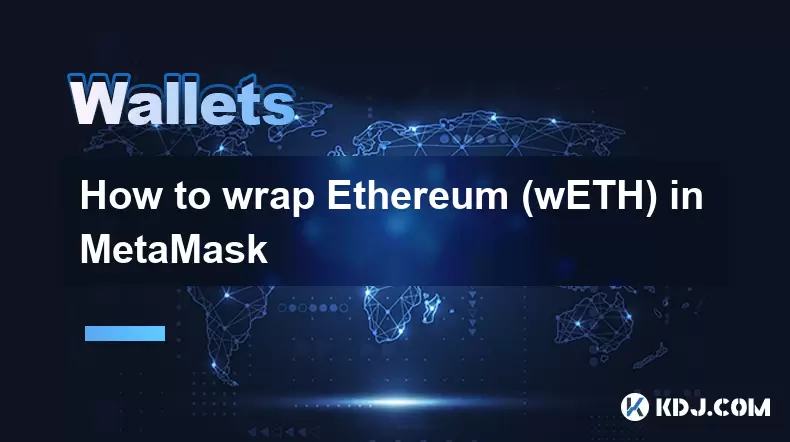
How to wrap Ethereum (wETH) in MetaMask
Aug 13,2025 at 11:36am
Understanding Wrapped Ethereum (wETH)Wrapped Ethereum (wETH) is a tokenized version of native Ethereum (ETH) that conforms to the ERC-20 standard, ena...

How to manage your portfolio in Exodus wallet
Aug 08,2025 at 10:07pm
Understanding the Exodus Wallet InterfaceThe Exodus wallet is a non-custodial cryptocurrency wallet that supports a wide range of digital assets. When...
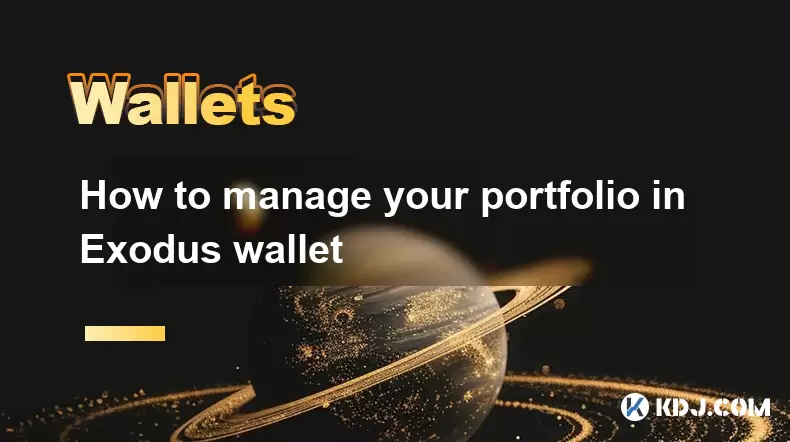
How to manage your portfolio in Exodus wallet
Aug 13,2025 at 11:35am
Understanding the Exodus Wallet InterfaceThe Exodus wallet is a non-custodial cryptocurrency wallet that supports a wide range of digital assets. Upon...

How to reset your MetaMask password
Aug 08,2025 at 01:28pm
Understanding the MetaMask Password Reset ProcessMany users confuse the MetaMask password with the seed phrase or private key, but they serve differen...
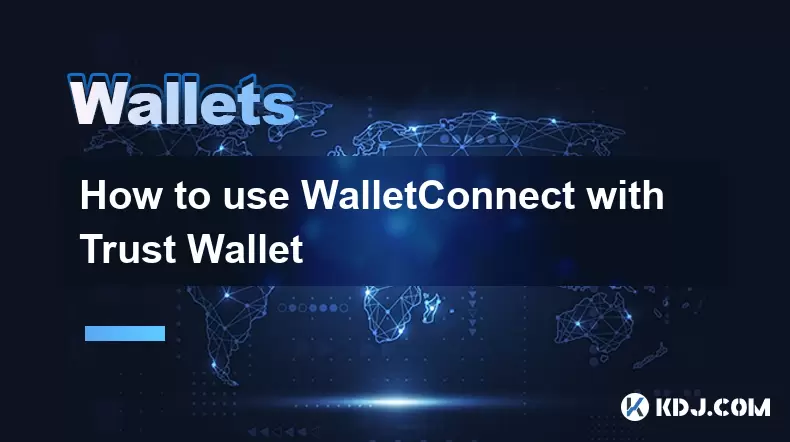
How to use WalletConnect with Trust Wallet
Aug 13,2025 at 01:07am
What Is WalletConnect and Why It Matters for Trust Wallet UsersWalletConnect is an open-source protocol that enables secure communication between dece...
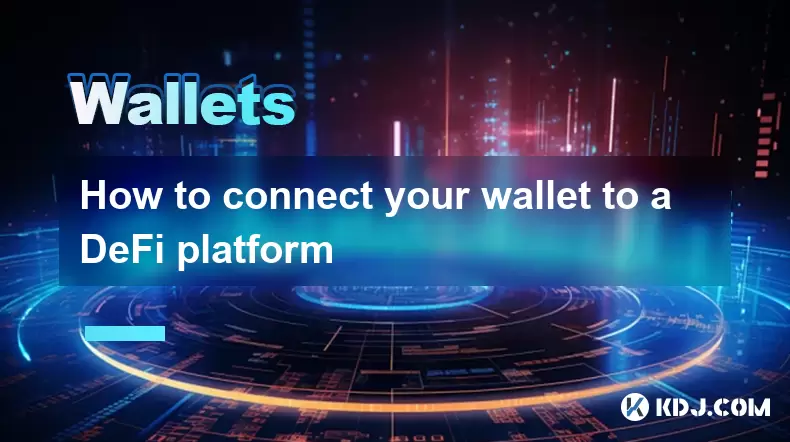
How to connect your wallet to a DeFi platform
Aug 13,2025 at 11:36am
Understanding Wallet Compatibility with DeFi PlatformsBefore connecting your wallet to any DeFi platform, it's essential to ensure your wallet is comp...

How to wrap Ethereum (wETH) in MetaMask
Aug 13,2025 at 11:36am
Understanding Wrapped Ethereum (wETH)Wrapped Ethereum (wETH) is a tokenized version of native Ethereum (ETH) that conforms to the ERC-20 standard, ena...

How to manage your portfolio in Exodus wallet
Aug 08,2025 at 10:07pm
Understanding the Exodus Wallet InterfaceThe Exodus wallet is a non-custodial cryptocurrency wallet that supports a wide range of digital assets. When...

How to manage your portfolio in Exodus wallet
Aug 13,2025 at 11:35am
Understanding the Exodus Wallet InterfaceThe Exodus wallet is a non-custodial cryptocurrency wallet that supports a wide range of digital assets. Upon...

How to reset your MetaMask password
Aug 08,2025 at 01:28pm
Understanding the MetaMask Password Reset ProcessMany users confuse the MetaMask password with the seed phrase or private key, but they serve differen...

How to use WalletConnect with Trust Wallet
Aug 13,2025 at 01:07am
What Is WalletConnect and Why It Matters for Trust Wallet UsersWalletConnect is an open-source protocol that enables secure communication between dece...

How to connect your wallet to a DeFi platform
Aug 13,2025 at 11:36am
Understanding Wallet Compatibility with DeFi PlatformsBefore connecting your wallet to any DeFi platform, it's essential to ensure your wallet is comp...
See all articles

























































































